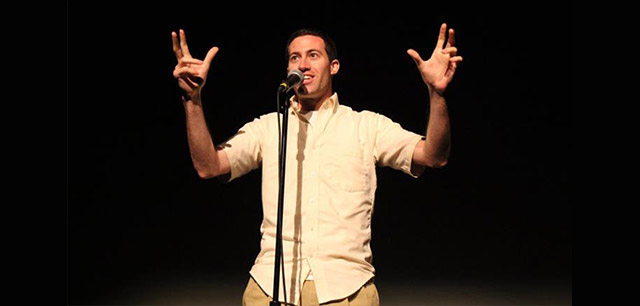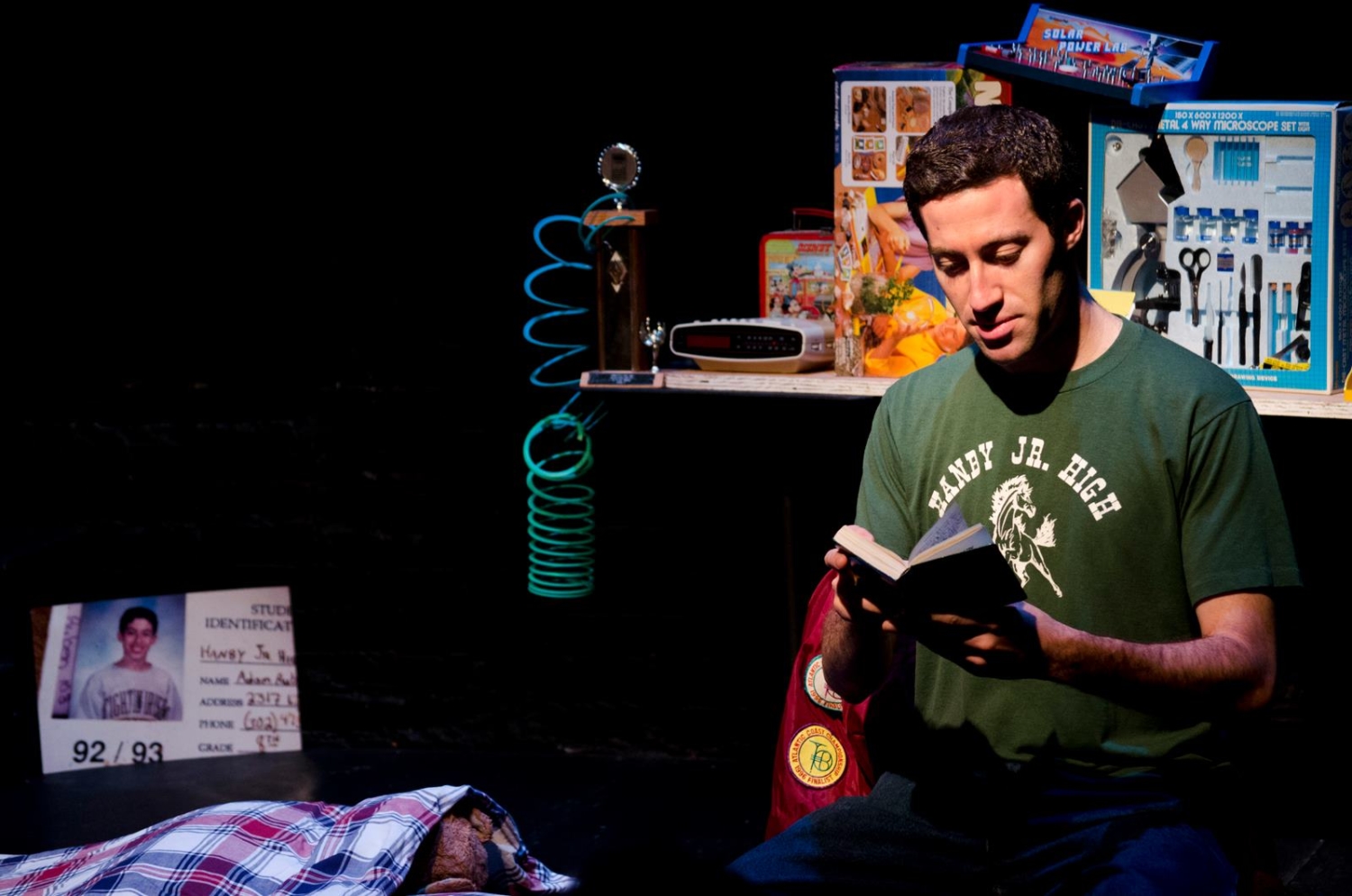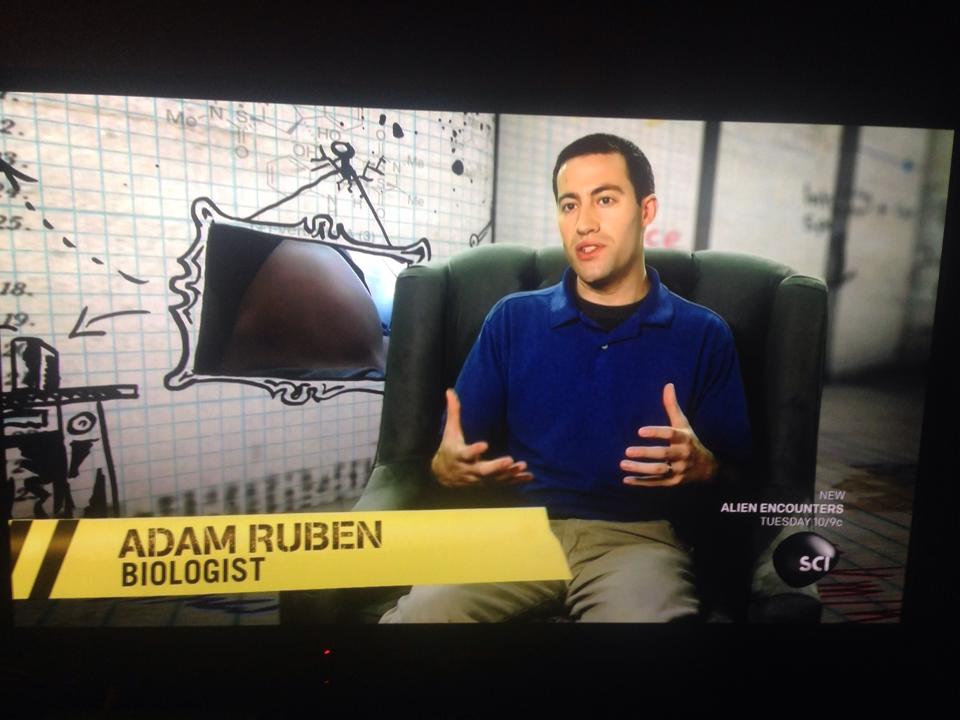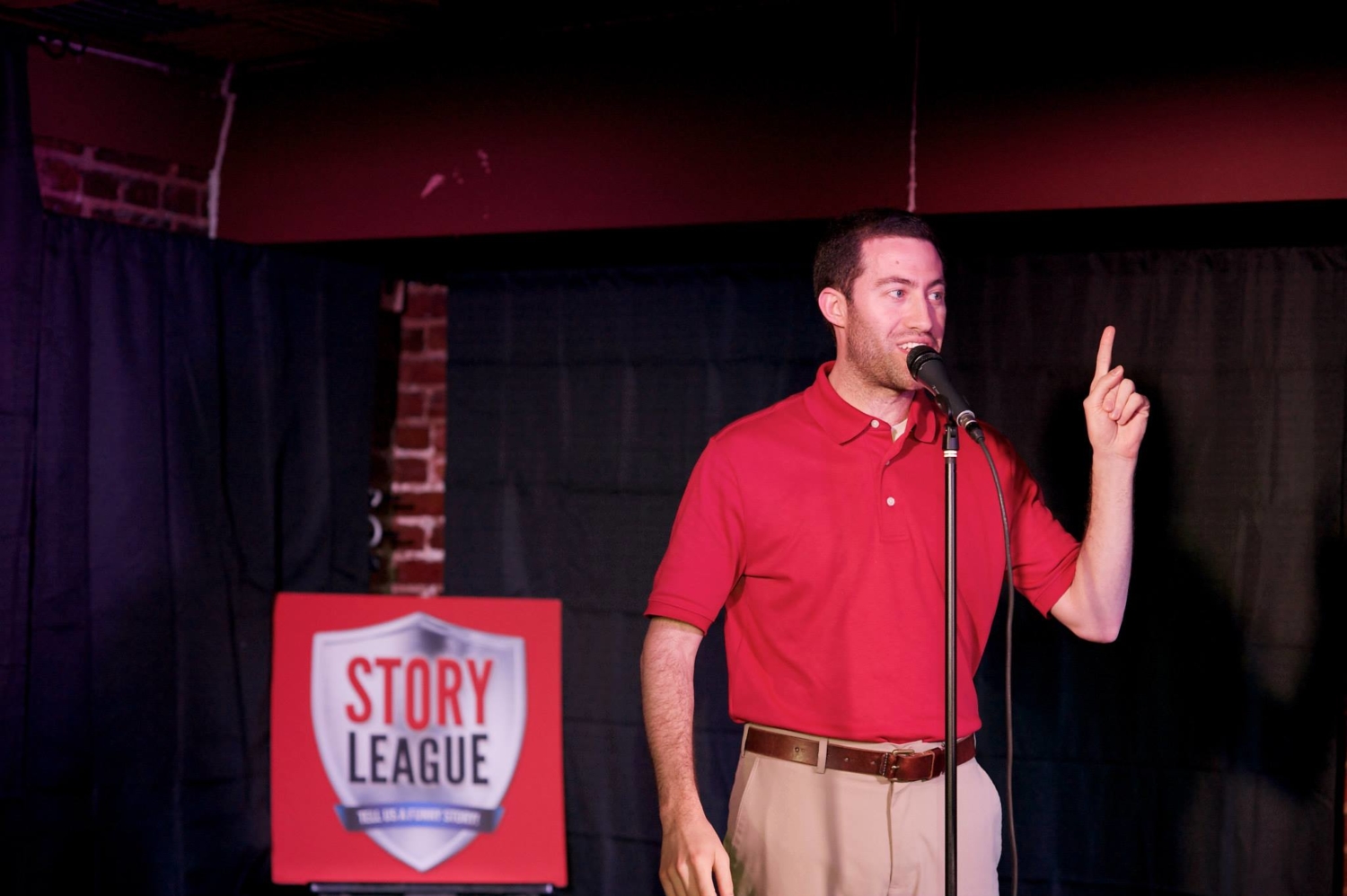Adam Ruben – The scientist that teaches undergraduate students comedy
What could a scientist gain by learning stand-up comedy?
How to manage a good work-life balance while being a scientist, a comedian, a writer, a teacher, a TV-host AND a father?!
Well, Adam Ruben does it and is very good at his jobs. Here he explained to us how he became such a super multitasker, and also why he teaches stand-up comedy to undergraduate students.
Adam Ruben is a real-life human Swiss knife: he is a molecular biologist, he teaches stand-up comedy to undergraduates at Johns Hopkins, he teaches storytelling with Story District as well as comedy at the Maryland Institute College of Art. He is the author of Surviving Your Stupid, Stupid Decision to Go to Grad School.
Adam is also a regular stand-up comedian and travels around the US to perform a solo show as part of anti-bullying programs. He has been a TV-host for many shows and documentaries. And on top of all that? He is a proud dad of (almost) 3!

If you’re a scientist who’s interested in doing something outside the lab, just do it.
You are currently working as both molecular biologist and a stand-up comedian. Do your two professions influence each other?
How do you manage a good work/life balance? Do you have any advice for our readers?

Pretend you’re giving a scientific talk to someone with less knowledge and a shorter attention span than you might otherwise assume
Why and how did you start to do science comedy?
I started doing science and comedy in parallel with no intention to combine them. While in grad school, I would work in the lab during the day, then perform in comedy shows at night. I thought science comedy had such niche appeal that it wouldn’t be worth trying to mix the two interests. At some point, however, I learned that while occupying a niche can pigeonhole you, it can also open up a world of opportunities specific for that niche.
Do you enjoy most the scientific part or the comic one? Why?
Tough to say. I enjoy both to the extent to which I wouldn’t want to give either one up. Obviously comedy is more fun in the traditional sense of the word “fun,” but science can be satisfying as well in a different way
You are currently teaching an undergraduate stand-up comedy class at Johns Hopkins. How did the project start?
If you had to choose only one “definition “ would you consider yourself a scientist, or rather a comedian?
Luckily, I’ve never been forced to make that choice. For a long time, I feared that something would come along to force me to choose one definition or the other–a science employer would forbid outside comedy gigs, or maybe some performing opportunity would come along and force me to decide between it and a career in science. So far, neither thing has happened, so I’ve been able to use both definitions, and I’m happy to do so until there’s a good reason not too.
Do you have any particular hobby? Is scientific comedy itself a hobby for you?
It’s tough to say where something crosses the line from hobby to more-than-a-hobby. Some people feel that if you make money doing something, it’s not a hobby. Others say that anything you do outside of a 9-to-5 job is more like a hobby. So maybe scientific comedy is a hobby, maybe it’s a parallel career, maybe it’s something in between. But to answer the first part of your question, I have other hobbies as well. Probably my favourite is pinball. I’m in a competitive pinball league, and sometimes I travel to national competitions and conventions. I wrote a book about pinball (Pinball Wizards: Jackpots, Drains, and the Cult of the Silver Ball), which was published by Chicago Review Press in 2017.

“Humor” teaches you how to convey something clearly and emphatically to a large group of people, which is a skill scientists need.
Do you think humor is an effective way to teach something, even when it comes to complex subjects, such as science?
Absolutely. Humor makes difficult concepts so teachable that it almost feels like cheating. Needless to say, you can’t use humor for everything, but now I’m thinking about all the times during my education when a teacher made a lesson fun, and they’re all easy to remember. Humor also forces you to communicate clearly–the joke doesn’t land if the listener can’t understand what it’s about.
What do scientists gain by practising stand-up? Could comedians learn from scientists?
Would you suggest other effective ways to communicate science to people?
A few years ago, I was asked to give a scientific talk at a high school, along with a few other scientists. Because this was a magnet high school for very intelligent kids, I (and we all) assumed we should direct the talks toward around an undergraduate level. But when we started setting up in the auditorium, we soon realized that most of the attendees, for whatever reason, were middle school kids and their parents. Suddenly everyone had to pare their talks down to a fifth-grade level. And you know what? It was one of the best series of scientific talks I’ve ever seen. The presenters, afraid of losing the attention of middle schoolers, were extra careful to communicate everything clearly and understandably, and it made all the difference. The lesson: Pretend you’re giving a scientific talk to someone with less knowledge and a shorter attention span than you might otherwise assume.
Which field of science would you consider comedy most suitable for?
I guess biology, since I’m a molecular biologist and can make many more biology-specific references than any other subject. But I’ve also spoken at an astronomy conference, a bioterrorism conference, and dozens of graduate schools with students in every subject.

I’ve been told that complaining is useless and whiny, but I would contend that sometimes complaining about something is a way to identify what’s wrong with that thing.
Could you give us a taste of your book (“Surviving Your Stupid, Stupid Decision to Go to Grad School”)?
A word of advice for our readers?
If you’re a scientist who’s interested in doing something outside the lab, just do it. If you’re interested in science writing, write a blog. If you’re interested in science outreach, volunteer to judge science fairs or give demos at schools. You don’t have to take yourself out of the lab to do these things; you can add them on the side, and if you like them and want to do them full-time, then you can worry about how/whether to transition. For now, get the experience and have fun doing it.
Would you like to add any other comment, we would be more than happy to include it.
More than just making people laugh, science comedy has a nobler purpose: It humanizes scientists. So many kids reach 12th grade having met many science teachers but never having met an actual scientist. We’re mythical creatures, “mad” archetypes, and the butt of jokes about how we’re book-smart but always miss the bigger picture. For people to trust scientists, for people to want to interact with scientists, and for people to want to become scientists, we need kids to grow up knowing that we’re human beings. Nothing makes this point quite as effectively as humor.
- Prof Christophe Bernard eNeuro Chief Editor – A video interview - September 5, 2021
- Tim Ward from Intermedia Communication – a video interview - November 4, 2020
- Sign your Science - September 22, 2020
- Dr. Dennis Eckmeier
– Science for Progress Podcast - August 20, 2020 - Raven the Science Maven - August 18, 2020
- Dr Mark Temple: DNA Sonification or when Scientist are musicians - August 5, 2020
- How we hear and brain trickery - July 3, 2020
- Be a Master of Scientific illustration - June 26, 2020
- Dr Tullio Rossi Animate your Science- a video interview - May 30, 2020
- Infographics and Covid-19 - May 3, 2020



